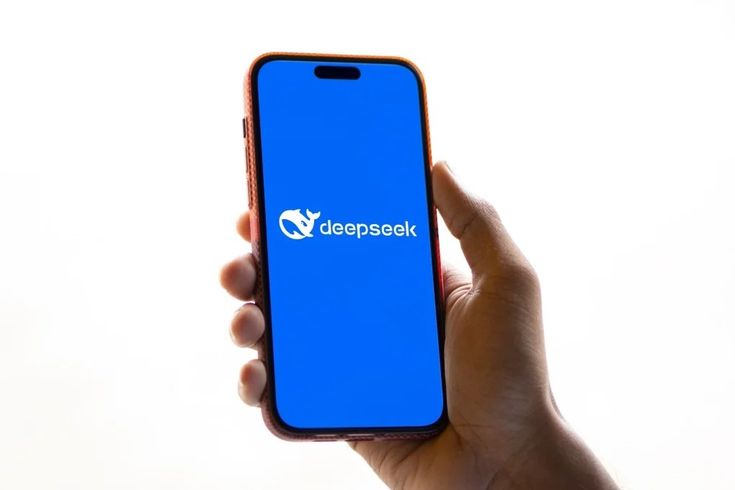Top 10 AI Tools Better Than ChatGPT for Content Writing (Free + Paid)
introduction
Top 10 AI Tools Better Than ChatGPT for Content Writing (Free + Paid)
AI has really changed the way we create content these days. Whether you’re brainstorming ideas or writing full blog posts and social media updates, these tools are making the process a lot smoother for writers, marketers, and business owners alike. Although ChatGPT has gotten a lot of attention as a useful assistant, it’s not the only option out there. In fact, for some specific tasks, there might be better choices available.
If you’re aiming to enhance your content creation skills, here’s a rundown of 10 AI tools that can sometimes outshine ChatGPT for particular writing tasks. Whether you’re looking for free options or something more premium, there’s likely a tool here that fits your needs.
1. Jasper AI (Paid)
Best for: Marketing content, long blog posts, email writing, and maintaining brand voice.
Jasper AI, previously known as Jarvis, is a favorite among marketers. It comes with various templates suited for just about any type of content, from blog entries to emails and even social media ads. One of the highlights is the Brand Voice feature, which helps businesses keep their messaging consistent across different platforms.
What’s great about it:
– Provides SEO-friendly content
– Allows tone customization
– Facilitates team collaboration
However, it comes at a price:
– It can be a bit pricey for individual writers, starting at $49 per month.
2. Writesonic (Free + Paid)
Best for: Quick blog drafts, advertisements, and SEO content.
Writesonic is powered by ChatGPT but is specifically focused on content writing. It offers various tools, including an AI Article Writer and product description creators, plus a YouTube script generator. The Sonic Editor lets you polish your writing effortlessly, similar to Google Docs.
Pros include:
– Good for producing large volumes of content
– Integrates with SurferSEO
– Has a free plan to get started
Keep in mind:
– You might need to tweak the tone and structure afterward.
– Their free option is available, and paid plans start at $16 a month.
3. Copy.ai (Free + Paid)
Best for: Content short enough for social media and catchy copy.
Copy.ai is well-known for generating short and impactful content. It works well for managing social media accounts or creating engaging taglines and product descriptions. With over 90 different templates, you’ll always have ideas available.
Benefits are:
– User-friendly interface
– Loads of templates to pick from
– Fantastic for those just starting out
On the downside:
– It’s not ideal for longer writing projects.
– The free plan has limited credits, while paid plans start at $49 a month
4. INK Editor (Free + Paid)
Best for: Writing and optimization aimed at SEO.
INK combines AI writing capabilities with built-in SEO tools. It helps ensure that your content is not only readable but also ranks well on Google. It provides real-time SEO scores and suggestions, which is incredibly useful for bloggers and marketers.
Great features include:
– Real-time feedback on SEO performance
– A distraction-free writing environment
– A plagiarism checker to maintain originality
However:
– The advanced SEO features are behind a paywall.
– There’s a free basic plan, while premium starts at $39 a month.
5. Scalenut (Free + Paid)
Best for: Comprehensive content strategy and AI writing.
Scalenut is a well-rounded content marketing tool. Beyond writing, it assists with keyword research, content briefs, and optimization. Essentially, it serves as a smart content strategist.
Pros include:
– Analysis of search engine results pages (SERP)
– Aiding in content planning
– Combining writing with SEO
Cons:
– There’s a bit of a learning curve for new users.
– A free trial is available, with paid plans starting at $39 a month.
6. Anyword (Free + Paid)
Best for: Writing that drives conversions.
Anyword places a strong emphasis on performance. It estimates how well your text might perform in terms of generating clicks and engagement through a “Predictive Performance Score,” making it ideal for marketers and those writing advertisements.
What stands out:
– Data-driven suggestions to boost performance
– Focus on optimizing for conversions
– Great for ads and landing pages
However:
– It has limited tools for long-form writing.
– There’s a free plan with limited credits, and paid options begin at $49 a month.
7. Sudowrite (Paid)
Best for: Fiction and creative writing.
For anyone into novel writing or storytelling, Sudowrite can be incredibly useful. It’s specifically tailored for creative writers and can help overcome writer’s block, build characters, and create vivid scenes.
Key benefits:
– Excellent for narrative writing
– Offers suggestions for rich descriptions
– Great idea generation features
Drawbacks:
– It’s not the best choice for SEO or marketing-focused content.
– Pricing starts at $10 a month.
8. Frase.io (Paid)
Best for: SEO content creation and enhancement.
Frase is unique because it melds content creation with intelligent SEO strategies. It produces content based on search engine results research and assists in outperforming competitors, making it suitable for serious bloggers and SEO experts.
Highlights include:
– SEO-driven content outlines
– Competitor analysis features
– Easy integration with other tools
The caveat:
– It may feel overwhelming at first.
– Pricing starts at $14.99 a month.
9. Neuroflash (Free + Paid)
Best for: Multilingual content, especially for European users.
Neuroflash supports over 20 languages and is particularly popular in Europe. It offers AI copywriting alongside brand voice management, ideal for teams that need to craft content in multiple languages.
Pros:
– Excellent for the German and wider European market
– Multilingual support
– Various templates and SEO features
However:
– Limited support for users outside Europe.
– The free tier is available, and paid options start from €29 a month.
10. Rytr (Free + Paid)
Best for: Inexpensive short-form content.
Rytr is straightforward and effective, providing functionality without a hefty price tag. It supports more than 30 uses cases and over 30 languages, making it perfect for quick tasks like emails, bios, or captions.
Notable features:
– Very budget-friendly
– Easy to navigate
– Offers a decent variety of tones and writing styles
There are some limitations:
– It lacks advanced editing features.
– A free plan exists, while premium options are only $9 a month.
Final Thoughts: Which Tool Is Best for You?
While ChatGPT is a solid choice, the right AI writing tool depends on what you actually need:
– For better Google rankings, go with INK or Frase.
– If your focus is on advertising and sales, try Anyword or Copy.ai.
– Looking to write a novel? Sudowrite would suit you well.
– Need both writing and SEO tools? Consider Scalenut or Writesonic.
I encourage you to try out a few of these tools since many have free trials; that way, you can find the one that fits you best. AI can’t replace your innate writing instincts, but it can certainly help streamline your writing process and reduce stress.
Do you have a favorite AI tool that’s helped you with your writing? Feel free to share your thoughts!
Helpful FAQs
- Are there AI writing tools more effective than ChatGPT?
Yes! ChatGPT is great all-around, but other tools such as Jasper, Writesonic, and Frase have specialized abilities for SEO, marketing, and long-form content that set them up even better for specific writing tasks. - Which AI tool is optimal for blog writing and SEO?
If you’re interested in creating blogs that rank on Google, products such as INK, Frase, and Scalenut are a perfect pick. They have content creation and real-time optimization for SEO. - What is the best free AI content writing tool?
Writesonic and Copy.ai both provide free plans with limited features. Rytr is also affordable, with a very good free plan. - Can AI tools substitute human writers?
Not exactly. AI software is great for accelerating the process, but they still require human input to create content that is really engaging, brand-relevant, and emotionally connected. - Are these tools safe for commercial writing?
Yes, most popular AI writing tools carry commercial-use licenses, so you can use the content they produce on your sites, advertising, or client work. Always read the terms for each tool. - Which artificial intelligence tool is ideal for creative writing or fiction?
Sudowrite is specifically designed for telling stories. It assists in character creation, descriptive writing, and in avoiding writer’s block.





![Top 10 AI Image Generator Tools [Better Than Midjourney?] 5 Top 10 AI Image Generator Tools [Better Than Midjourney?]](https://deepseek-ai.pro/wp-content/uploads/2025/06/ai-tools-like-midjourney-768x432.webp)


